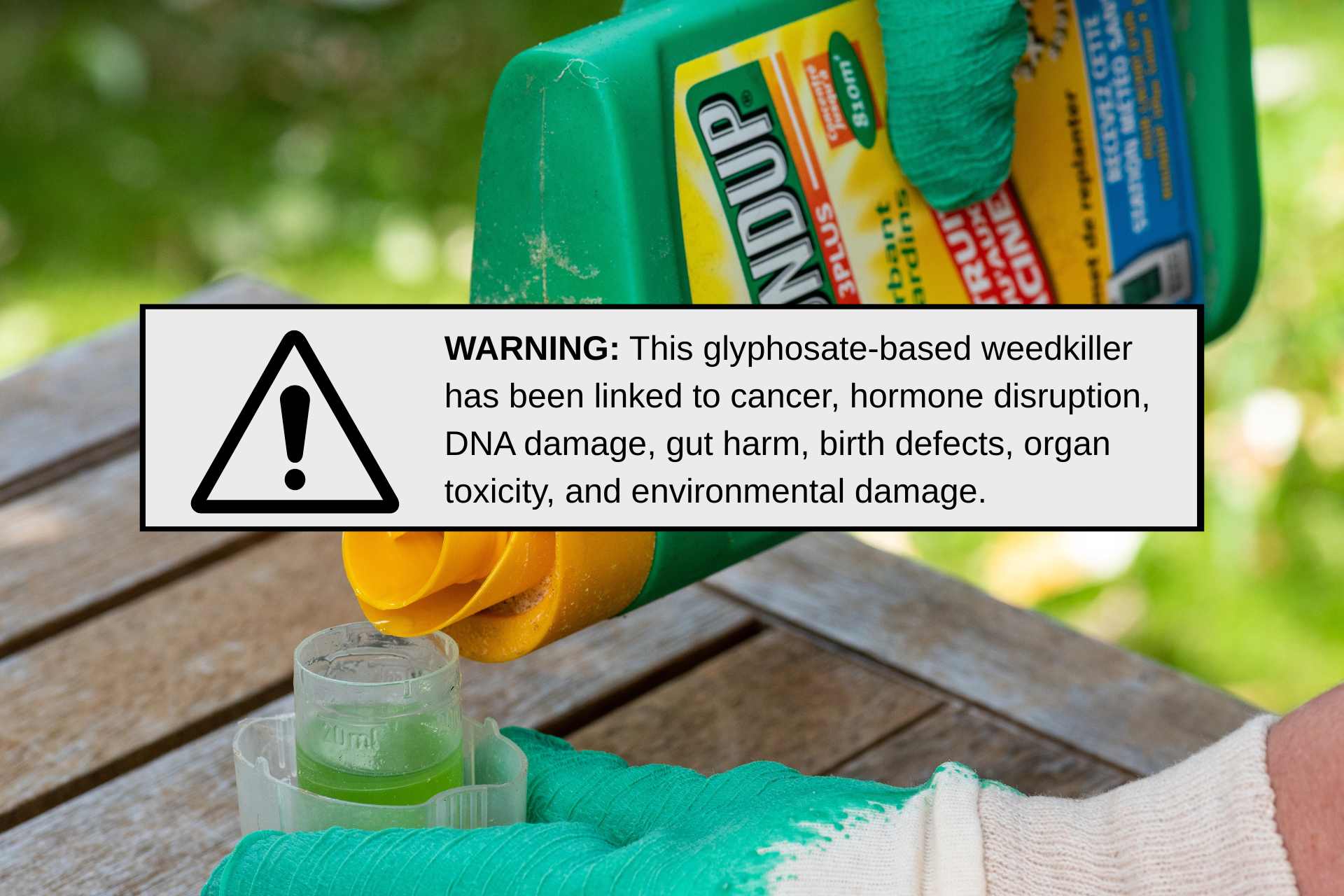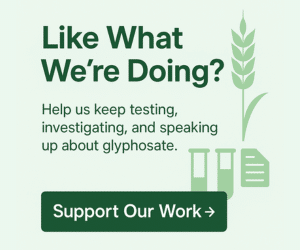Open Letter to the Environmental Protection Authority
And to the Ministers of Health, Food Safety, and the Environment who share responsibility for protecting New Zealanders
9 October 2025
Glyphosate-based weedkillers such as Roundup are sold freely in New Zealand. Yet unlike tobacco, alcohol, or even energy drinks, these products carry no health warning labels.
Even toothpaste — a product used daily by adults and children — is required to state: “If you accidentally swallow more than used for brushing, seek professional help or contact a poison control center immediately.” The absence of comparable warnings on glyphosate-based weedkillers — products classified internationally as probable human carcinogens — is difficult to justify.
In 2015, the World Health Organization’s International Agency for Research on Cancer (IARC) classified glyphosate as a probable human carcinogen. Since then, courts overseas have awarded substantial damages to individuals who developed cancer following exposure to glyphosate-based formulations. Even where debate continues, these developments demonstrate that precautionary action is justified.
Our Questions
We are asking the Environmental Protection Authority (EPA), and the Ministers who hold responsibility for public health and chemical regulation, to explain:
- Why does New Zealand not require warning labels on glyphosate-based weedkillers, when it does for tobacco, alcohol, energy drinks, and even household items like toothpaste?
- Will the EPA and responsible Ministers initiate a review of current labeling requirements, so New Zealand families are given the same right-to-know protections already applied to other consumer products?
This Is Not a Call for a Ban
This request is not about banning glyphosate. It is about basic transparency. Consumers deserve to make informed choices at the point of purchase. Right now, our shelves send the opposite message: that glyphosate-based products are entirely safe.
Accountability Matters
Today we have written directly to:
- Dr Allan Freeth, Chief Executive, Environmental Protection Authority
- Penny Simmonds, Minister for the Environment
- Simeon Brown, Minister of Health
- Andrew Hoggard, Minister for Food Safety
- Audrey Sonerson, Director-General of Health
We will publish their responses so the public can see exactly how New Zealand’s regulators and Ministers explain the absence of health warnings on glyphosate-based weedkillers.
New Zealanders deserve the same protections already applied to other hazardous products. Anything less is a failure of duty of care.
NoMoreGlyphosate.nz
Resources & References
Facts matter. Claims about glyphosate are often met with reassurance rather than transparency. These resources provide the scientific evidence, legal precedents, and local context behind our call for warning labels. We encourage readers to follow the links, read widely, and judge for themselves.
Our Recent Articles
“$611M Bayer Verdict: Why NZ Needs Roundup Warnings” — discusses the Missouri court decision upholding a $611 million verdict against Bayer, and contrasts that with the lack of warning labels in New Zealand.
“Pregnancy, Pesticides & the Cocktail Effect” — explores how exposure to multiple pesticides together during pregnancy may have compounded effects on fetal development.
“Glyphosate & Metabolic Dysfunction” — examines evidence linking low-dose glyphosate exposures to metabolic disturbances, obesity and liver disease in animal and human studies.
“Glyphosate Cancer Red Flags NZ” — reviews warning signals and emerging cancer associations relevant to New Zealand.
“Why NZ Needs a Glyphosate Reality Check” — argues that official policy and public awareness are lagging behind emerging science.
External Scientific & Legal References
Glyphosate-Based Herbicide Stress During Pregnancy (Bai et al., 2025) — a piglet model study showing that maternal glyphosate exposure altered DNA methylation and impaired intestinal development in offspring.
Glyphosate Exposure in Early Pregnancy & Reduced Fetal Growth (Gerona et al., 2022) — human cohort study finding associations between glyphosate levels and lower birth weights and higher NICU admissions.
Study: Glyphosate Presence in Human Sperm (Vasseur et al., 2024) — first human report linking glyphosate exposure to reduced sperm quality; raises reproductive health concerns.
Effect of Perinatal Exposure on Thyroid & Metabolic Health (Rat Model) — a study showing that glyphosate combined with other herbicides disrupted endocrine / thyroid function and offspring metabolic outcomes.
NZ EPA & Glyphosate Risk Assessment History (soilandhealth.org.nz)— document showing that NZ’s EPA has never conducted a formal independent risk assessment of glyphosate formulations, and has ignored formulation toxicity concerns.
Warnings on tobacco, alcohol, and even toothpaste are grounded in decades of accumulated evidence and precaution. The resources above show that glyphosate-based weedkillers now face a similar weight of concern. If regulators and Ministers continue to ignore it, the question becomes not just scientific but ethical: how long can we pretend the risks don’t exist?
→ Sign Up for the Newsletter | Support our work with a Donation




